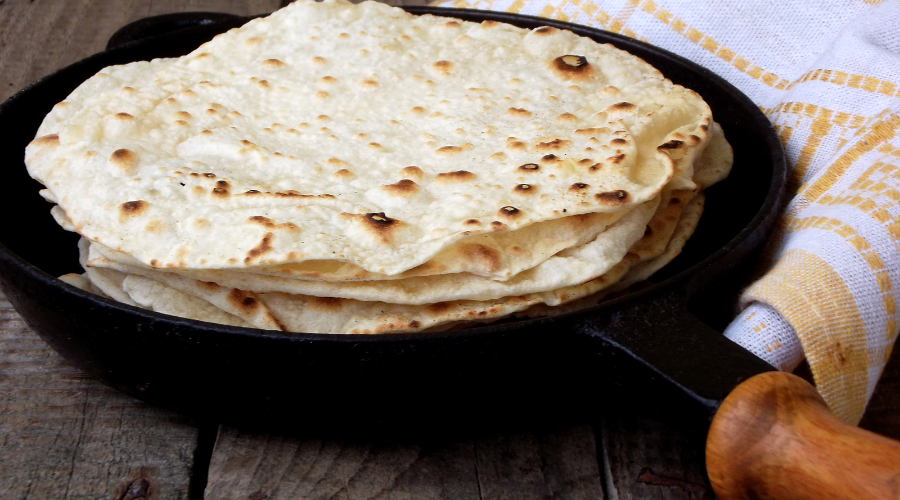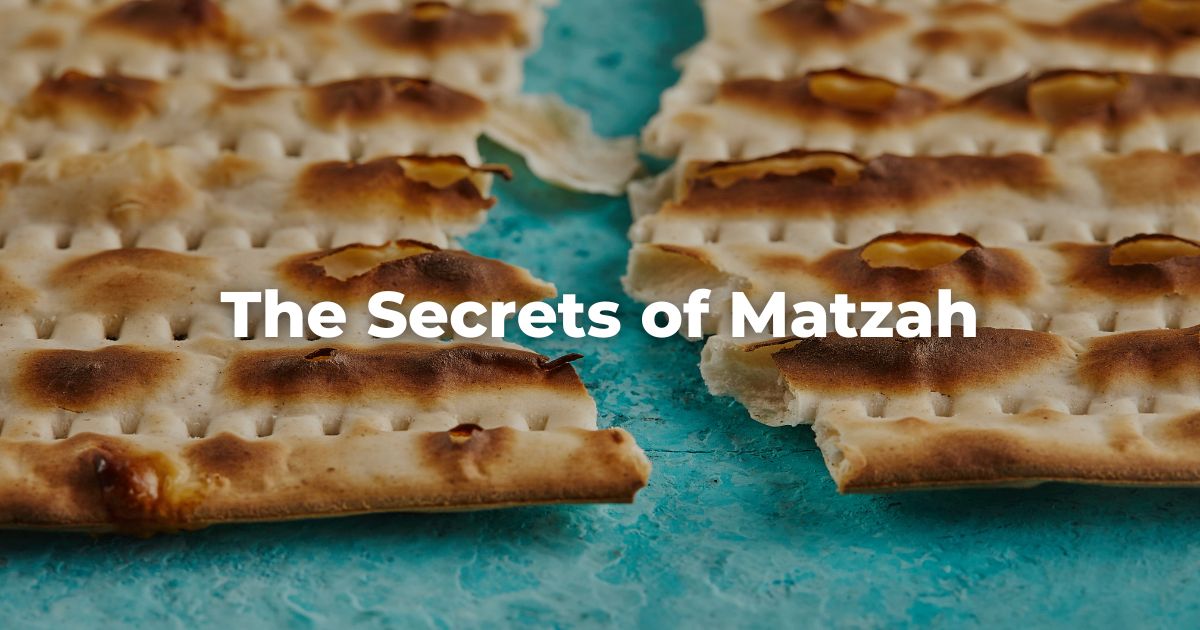Are you curious about the timing of the Festival of Unleavened Bread? This ancient festival holds significant importance in various cultures and religions, but pinpointing the exact dates can sometimes be shrouded in mystery. In this blog, we will delve into the historical and religious significance of the Festival of Unleavened Bread and uncover the answer to the burning question: when is the festival of unleavened bread celebrated? By exploring its origins, traditions, and associated practices, we aim to shed light on this commemorated event and provide clarity on its timing. Join us on this journey to unravel the mystery behind the Festival of Unleavened Bread!

April 22, 2024
4/22/2024 = 88
The Red Heifer and the Third Temple in End-Time Prophecy
"Speak unto the children of Israel," the Lord commanded, "that they bring thee a red heifer without spot, wherein is no blemish, and upon which never came a yoke." The cow will be given to… pic.twitter.com/GLGnJZicQI
— Susan Wood (@susieq1007) April 22, 2024
History of the Festival of Unleavened Bread
The Festival of Unleavened Bread is a significant observance in the Jewish calendar, closely linked with Passover. It commemorates the Israelites’ exodus from Egypt when they had to leave in such a hurry that there was no time for their bread to rise. This is why during this festival, the consumption of leavened bread is avoided, and only unleavened bread is eaten.
Origin and Biblical Significance
The roots of the Festival of Unleavened Bread can be traced back to the Exodus story in the Bible, specifically in the book of Exodus. According to the scriptures, it symbolizes the haste with which the Israelites had to flee Egypt and the hardships they endured during their journey to freedom.
Celebration and Observance
The festival typically lasts for seven days, during which time leavened products are removed from the household, and unleavened bread, known as matzah, is consumed. Special meals and traditions are also observed during this time, including the retelling of the exodus story and the practice of specific rituals.
It is a time of reflection, gratitude, and celebration as families and communities come together to remember the trials and triumphs of their ancestors.

Significance of the Festival
The Festival of Unleavened Bread, a significant event in the Jewish calendar, holds immense cultural, historical, and religious importance. It commemorates the Israelites’ hasty departure from Egypt, a pivotal moment in their history. The event is celebrated annually as a reminder of their deliverance and redemption.
Symbolism and Tradition
The unleavened bread, known as matzah, symbolizes the Israelites’ swift escape from Egypt, as they did not have time to let their bread rise. This unleavened bread is a staple during the festival, consumed to honor the sacrifices and hardships endured by their ancestors.
The act of removing leaven from homes signifies the removal of sin and impurity, reflecting a period of introspection and spiritual cleansing for believers.
Celebratory Practices
During this festival, traditional meals are prepared with unleavened ingredients, emphasizing the historical significance of the event. Families gather for festive meals, retelling the story of the exodus and expressing gratitude for their freedom.
One of the key rituals during this festival is the Seder meal, a ceremonial feast that recounts the Exodus story, involving symbolic foods and prayers.
Community and Unity
Participation in the Festival of Unleavened Bread fosters a sense of community and unity among Jewish individuals worldwide. It serves as a time for families and communities to come together, strengthening bonds and passing down traditions to the next generation.
The festival promotes reflection on personal freedom and spiritual growth, encouraging believers to strive for a more meaningful and purposeful life.
Observance and Customs
The Festival of Unleavened Bread holds significant observances and customs that have been practiced for centuries. Let’s delve into some of the key traditions surrounding this ancient festival in {{year}}.
Removal of Leaven
One of the central customs during the Festival of Unleavened Bread is the removal of leaven from households. This symbolic act signifies the removal of sin and impurity, aligning with the essence of the festival {{year}}.
Matzah Preparation
Matzah, unleavened bread, is a staple during this festival. Families engage in the meticulous preparation of matzah, emphasizing its significance as the bread of haste, a reminder of the Israelites’ hurried departure from slavery in Egypt in {{year}}.

Scriptural References
When is the Festival of Unleavened Bread is a significant question that many individuals inquire about, particularly in the context of religious observances. The festival holds deep biblical roots, with specific scriptural references guiding its observance and importance.
Exodus 12:15-20
In the book of Exodus, the importance of the Festival of Unleavened Bread is highlighted. This passage outlines the specific instructions given to the Israelites regarding the observance of this festival. It emphasizes the removal of leaven from their homes and the consumption of unleavened bread for a designated period.
This scriptural reference serves as the foundation for the observance of the Festival of Unleavened Bread, emphasizing the spiritual significance of removing sin and impurity from one’s life.
Deuteronomy 16:3-4
Another significant scriptural reference regarding the Festival of Unleavened Bread can be found in the book of Deuteronomy. This passage further elaborates on the historical context and observance of the festival, emphasizing the commemoration of the Israelites’ exodus from Egypt and the importance of maintaining unleavened bread throughout the period.
Deuteronomy provides additional insights into the spiritual significance of this festival, highlighting the themes of redemption, purity, and obedience to God’s commands.
Frequently Asked Questions
- What is the Festival of Unleavened Bread?
- The Festival of Unleavened Bread is a Jewish holiday that commemorates the Exodus of the Israelites from Egypt.
- When is the Festival of Unleavened Bread typically celebrated?
- The Festival of Unleavened Bread usually begins on the 15th day of the Hebrew month of Nisan and lasts for seven days.
- What is the significance of unleavened bread during this festival?
- During the Festival of Unleavened Bread, it is customary to eat unleavened bread to symbolize the haste in which the Israelites left Egypt and to remember their time in the wilderness.
- How is the Festival of Unleavened Bread different from Passover?
- Passover and the Festival of Unleavened Bread are closely related but distinct holidays. Passover commemorates the Israelites’ liberation from slavery in Egypt, while the Festival of Unleavened Bread focuses on the unleavened bread and the journey through the wilderness.
- Are there any specific traditions or rituals associated with the Festival of Unleavened Bread?
- Yes, there are several traditions and rituals associated with the Festival of Unleavened Bread, including cleaning the house to remove all traces of leavened products, refraining from eating leavened bread or products, and holding special meals with symbolic foods.
Unlocking the Mystery: Understanding When the Festival of Unleavened Bread Falls
In conclusion, the Festival of Unleavened Bread is a significant observance in various cultures and religions, each with its unique timing and practices. For those following the Jewish calendar, this festival typically begins on the 15th day of Nisan and lasts for seven days. This period is marked by the removal of leavened bread from households and the consumption of unleavened bread, symbolizing purification and renewal.
Understanding the historical and symbolic significance of the Festival of Unleavened Bread can enrich our cultural awareness and spiritual practices. By delving into the traditions and meanings behind this festival, we can deepen our connection to ancient customs and appreciate the symbolic importance of unleavened bread in various faith traditions.
Whether you observe this festival for religious reasons or seek to learn more about different cultural practices, the Festival of Unleavened Bread offers a rich tapestry of history and tradition worth exploring.